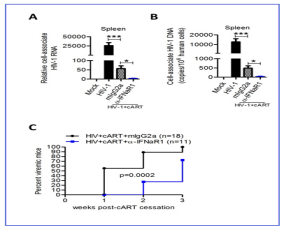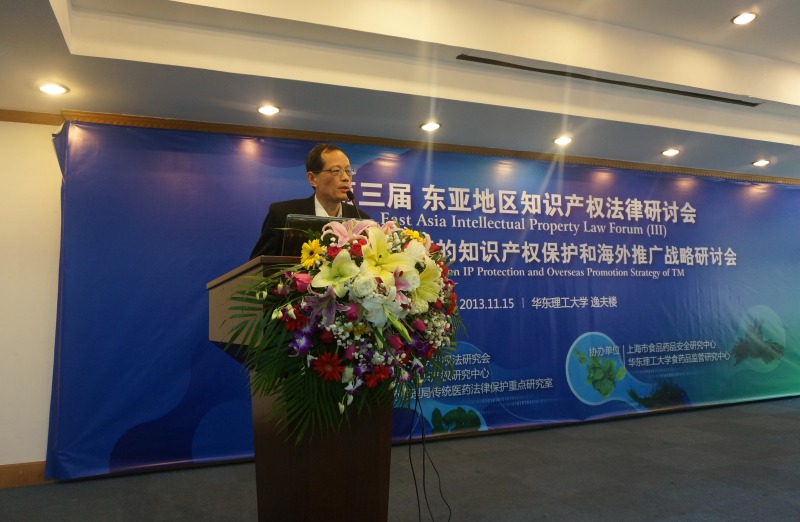Research Reveals that the Type I Interferon is an Accessory of HIV
The latest research result “Blocking type I interferon signaling enhances T cell recovery and reduces HIV-1 reservoirs” which completed by the research group of ZHANG Guoli from Institute of Biophysics of Chinese Academy of Sciences and Professor SU Lishan from The University of North Carolina has been published on The Journal of Clinical Investigation on Dec. 12th, 2016.
Type I interferon (hereafter referred to as interferon) is an important kind of antiviral agent. Moreover, it is broadly applied in clinical treatments on virus-caused-disease, such as hepatitis B and C. The role of interferon in the HIV infected person has always been controversial. Although some reports showed that it can inhibit the proliferation of HIV, there is no reliable effect found in clinical research on HIV infected person. So far, interferon is not approved for AIDS treatment.
ZHANG Guoli’s research group and Professor SU have taken a long-term cooperation. They devoted themselves on the analysis of interferon about its function and mechanism on HIV infection. Through the previous study, they have improved that plasmacytoid dendritic cells (pDC) are the main cells which generate interferon on HIV infection. In a humanization mouse model infected by HIV, they found that the role of pDC on HIV infection is like a double-edged sword after deleting pDC by specific antibody. On the other hand, it can inhibit the replication of HIV. However, it participates in the damage to the immune system with HIV. (PLOS Pathogens,2014)
They have firstly developed the monoclonal antibody which can interdict the affection of interferon. The dual functions of interferon found in a humanization mouse model infected by HIV further verify the experimental result of pDC deletion. Based on these researches, they put up a scientific hypothesis. If the interferon would be inhibit on cART treatment, anti-HIV immune response and HIV removing would be improved because the cART can compensate the antiviral effect of interferon. Through the monoclonal antibody which can interdict the affection of interferon, they have proved above hypothesis in a humanization mouse model infected by HIV. As shown in the picture, the content of HIV in animal body decrease dramatically when the interferon is inhibited at the same time of anti-HIV drug treatment. (A&B) After stop using the anti-HIV drug, the virus in matched group (mIgG2a)rebound quickly while the virus in interferon blocking group (α-IFNAR1) rebound slowly.
The correlation of this research and AIDS clinical treatment mainly show in two aspects. It is in patients who suffer from immunological non-responsiveness at first. The blocking of interferon may improve the recovery of immune function in these patients. Secondly is about the functional cure of AIDS.

Time: 2016-12-23
Source: Institute of Biophysics
next:Research Reveals the Hematopoietic Stem Cells Developmental Mechanism Regulated by 5-HT


